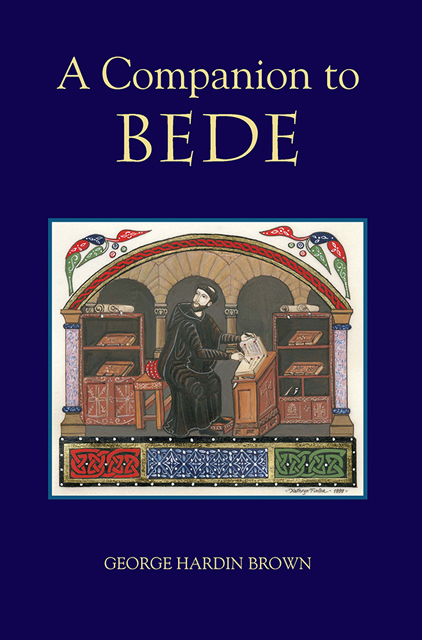Book contents
- Frontmatter
- Contents
- Preface and Acknowledgments
- Abbreviations
- 1 Bede’s Life and Times
- 2 Educational Works
- 3 The Biblical Commentaries
- 4 Homilies, Hagiography, Martyrology, Poems, Letters
- 5 The Histories
- 6 A Brief History of Bede’s Works through the Ages
- Works Cited
- Index of Bede’s Works
- General Index
- Anglo-Saxon Studies
3 - The Biblical Commentaries
Published online by Cambridge University Press: 03 March 2023
- Frontmatter
- Contents
- Preface and Acknowledgments
- Abbreviations
- 1 Bede’s Life and Times
- 2 Educational Works
- 3 The Biblical Commentaries
- 4 Homilies, Hagiography, Martyrology, Poems, Letters
- 5 The Histories
- 6 A Brief History of Bede’s Works through the Ages
- Works Cited
- Index of Bede’s Works
- General Index
- Anglo-Saxon Studies
Summary
THE PRIMARY focus of Bede's life was the study of the Bible and the integration of its lessons to Christian life. All else was subservient to that. He states, “I have spent all my life in this monastery, applying myself entirely to the study of the Scriptures.” The “great mass of books” that Benedict Biscop and Ceolfrith had brought from the Continent for the monastery's fine library furnished the means to accomplish that task. As a consciously orthodox scholar living in a strongly conservative monastery using a library chosen with great care by the founding abbots, Bede in his biblical commentaries follows the tradition and format inherited from the western Fathers, who in turn had practiced exegetical methods used by rabbinical and early Christian theologians like Origen, Tertullian, and Victorinus. While Bede had no wish to be singular, he made his own extensive contributions and played a major role in forming the canon of primary patristic authority. It was he who established the authoritative tetrarchy of Jerome, Augustine, Ambrose, and Gregory. He asserts his intention “to follow the footsteps of the Fathers” in bringing the truth of the Scriptures to his age, while being fully conscious that he was interpreting the Bible authoritatively. As he explains in the bio-bibliography at the end of the Historia ecclesiastica, he produced in brief format the comments of the Fathers “breuiter adnotare … curaui” but also added his contribution to their formulations (“etiam ad formam sensus et interpretationis eorum superadicere curaui”). Always scrupulous of the truth and vehemently opposed to heresy, Bede strives to convey the deepest meaning of the text by way of lucid interpretation within the orthodox tradition. Bede's exegesis is not aimed at an academic, philological, or abstract theological analysis of the text; rather, while manifesting great learning, his exegesis searches the core meanings of the Scriptures for the edification and development and maintaining of the spiritual life and, in its later stages especially, for the reformation of the individual and the Church.
The books of the Bible Bede chooses to interpret, often in response to a request, are of two types: those books that were already favorites of the Fathers, such as Genesis and Luke, and those that were largely ignored by earlier exegetes, such as Ezra and Nehemiah and New Testament Catholic Epistles.
- Type
- Chapter
- Information
- A Companion to Bede , pp. 33 - 72Publisher: Boydell & BrewerPrint publication year: 2010



